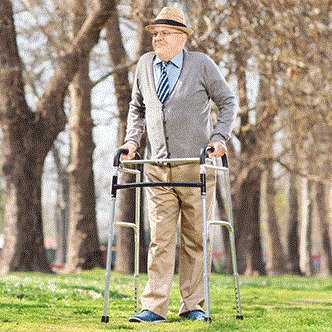
According to a study recently published in the Journal of the American College of Cardiology, addressing early signs of frailty could help lower heart disease risk in older adults.
Conducted in Northern Italy, this study included more than 1,500 men and women over 65 who were free of heart disease and any other disabilities at the beginning of the study. Researchers assessed both the mental and physical health of participants using surveys and physical examinations at the start of the study and then followed subjects for more than four years for various heart outcomes, such as heart disease, heart failure and stroke.
After analysis, researchers found that early signs of frailty—including unintentional weight loss, low physical activity level, weakness, exhaustion and slow walking speed—were associated with increased heart risks. Specifically, low levels of physical activity, exhaustion and slow walking speed were significantly associated with increased risk for heart disease, even after taking into account other cardiovascular risk factors.
The good news, as authors point out, is that the early warning signs of frailty are potentially reversible. It’s well established that frailty is common among patients with or at risk for heart disease and is associated with poorer outcomes compared to healthy, older adults. However, authors hope that by identifying the warning signs of frailty associated with increased heart risks, it’s possible to intervene and help older adults increase their strength to hopefully ward off heart conditions later in life.